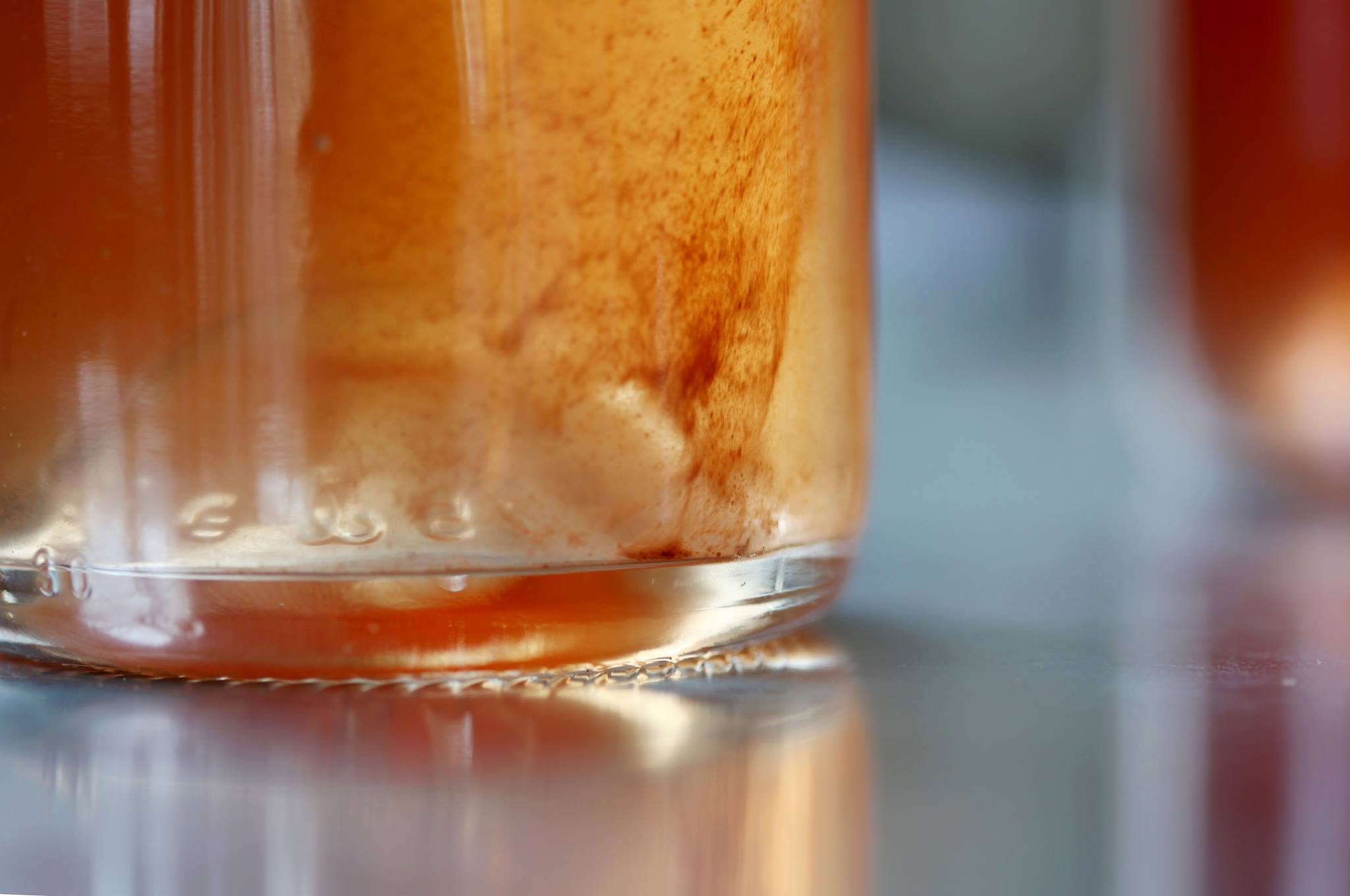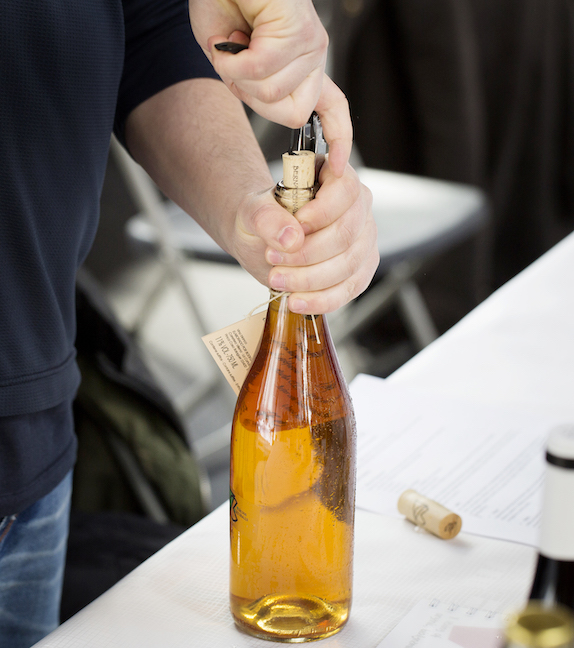Arguably not the last word on the subject
To find no-sulphur wines liberating and energising is not to cast aspersions on wines that are made with an addition of sulphur. Sulphur is relative to the wine, and we can discuss it as a substance that may bind and tighten, on the one hand, but also one that may scrape and scar and profoundly inhibit the life in the wine.

This piece is necessarily subjective and anecdotal. In the past few months I have drunk many no-sulphur wines but also tasted a sufficient number that had a certain amount of sulphur added. The no-sulphur natural wines have, by and large, been sparkling – by which I don’t mean that they were refermenting but that they bristled with purity.
To find no-sulphur wines liberating and energising is not to cast aspersions on wines that are made with an addition of sulphur.
The evidence is in the tasting rather than the plodding dogma. It is about experience rather than assertions based on quasi-scientific certainties. The more I read the expostulations of certain wine commentators the more I wonder whether they feel the need to invoke science like some personal voodoo god in order to lend corroborative verisimilitude to their bald and unconvincing arguments. So excessively histrionic are the people who pronounce on natural wine brandishing their imprimatur of science, you might expect the metaphorical white lab coat to be eventually replaced by the white straitjacket. Fundamentalism is fundamentalism in all its guises, though is more insidious when cite scientific knowhow as your divine character reference.
Let us look at the arguments.
Sulphur is indeed the element in the room. It is the S-word, synonymous with Science (capital S) and S-ertainty. As I have written before, natural wine is not all about the presence or absence of sulphur or even whether or not it is added to the wine. It is more about degree and philosophical approach to winemaking; more about perception of quality and relativism of taste. There may be absolutism on the fringes, wherein one or two vignerons abjure added SO2, yet there is hardly a grower in our portfolio who would not do something to protect the wine if the wine needed protecting. There’s the judgement call – none, a little before bottling, a moderate quantity, a lot? When does the addition improve the wine, when does it mar it?
Sulphur is relative to the wine, and we can discuss it as a substance that may bind and tighten, on the one hand, but also one that may scrape and scar and profoundly inhibit the life in the wine.
These are relative judgements. If there was an easy answer I suspect that vignerons would all work in the same way. But most natural winemakers do different things to different wines – even to different barrels of the same wine. Which seems entirely reasonable. This fact doesn’t fit into a narrative that caricatures natural vignerons as anti-science and “lazy-faire.”
Who are we to drink no sulphur wines? This is tantamount to saying that wine, or what is called wine, cannot physically exist without certain chemical additions. God does indeed play dice and he prefers to make vinegar rather than wine. And the devil uses sulphur.
Admirers of no-lo are accused of being nonplussed by the ignis-fatuus of eldritch liquids and of conducting a fine romance with dead wines – a necromance, if you will – for the only wine we should all be drinking is surely a faultily faultless stable one (rather than wine that smells as if it comes from a stable), with that cleansing matchstick tick of certainty. Oh yeah. And if you can even countenance drinking a no-lo wine then you must either have no taste buds to speak of, or be possessed by a kind of morbid zeal. The term lunacy is most readily ascribed to the druidical followers of perceived natural “movement” by those very people who don’t believe that the activity of the moon governs our moods or distorts our logic – which is somewhat ironic. But then logic has never governed their pronouncements either. No added sulphur. Three little words. Total winemaking heresy.
Natural wine is not all about the presence or absence of sulphur or even whether or not it is added to the wine. It is more about degree and philosophical approach to winemaking; more about perception of quality and relativism of taste…There’s the judgement call…When does the addition improve the wine, when does it mar it?
Despite the best and the worst efforts of the commentariat to characterise it otherwise, the truth is invariably more complicated than opposing good methodology with doggone madness. As Emmanuel Houillon, mentored by Pierre Overnoy, one of the archdeacons of no-sulphur, notes: “To work without sulphur ‘it’s not the little birds that sing and then one goes on vacation’. It’s very technical with a lot of analysis, it’s not a small business! If one wants to make “sans soufre” it’s enough to not add any, but then you see the results…”. Even for Houillon making good wine without added sulphur-dioxide relies on a series of factors which begin in the vineyard. He would never recommend it blithely to any grower who has not created all the preconditions to begin to make zero-sulphur wines. One should parenthetically add that the wines will probably make a little sulphur during the fermentation in any case so this notion of a wine with absolute zero-sulphur does not apply.
The most important prerequisite for low sulphur wines are soils that have been untreated with herbicides, pesticides and fungicides for many years.
The most important prerequisite for low sulphur wines are soils that have been untreated with herbicides, pesticides and fungicides for many years. This allows the flora and fauna of the soil to produce the micro-nutrients needed by the vine, which, in turn, results in juice less needy of the crutches and corrections of modern winemaking. A robust population of wild-yeasts will also be present which will minimize the effects of “bad” yeasts which can produce high volatile acidity and unpleasant aromas. High acidity, high malic acid and low temperature vinification help retard bacterial activity and a long elevage with careful bottling can minimize the flavours of yeast autolysis in wines that have not been racked (to avoid contact with oxygen). Scrupulous hygiene and painstaking monitoring – natural wine is an exacting, hands-on, lips-on process. Some growers work with oenologists who analyse the wine to determine whether it can be bottled without sulphur, while others, like Pierre Frick or Jean-Pierre Robinot, simply draw a glass from the barrel and leave it out for a week or so, periodically tasting to see how the wine reacts. Whatever the technique, a well-made zero-sulphur wine can be beautifully complex and pure, mutable and alive, providing a tasting and drinking experience that can make conventional wines seem simple and one-dimensional. The growers do great work in the vineyard, and in the cellar, with living soils producing complex micro-organisms which in turn produce living wines of great character.

Vinicultural funambulism inevitably means that you will not end up with something monolithic, but a wine that shifts in the glass and the bottle. No sulphur wines are a conundrum for the average critic who wants to (or needs to?) have fixed opinions about wines. How, after all, can you recommend something which may be in constant state of flux? How do you judge when your conceptions of right and wrong, good and bad, true and false are being challenged by a wine that refuses to conform to expectations? This is where we have to abandon the inert standardised language of response and come up with more fluid analogies. To sulphur or not to sulphur is not really the question; it is about understanding that wine can be one thing, or it can be myriad things.
Whatever the technique, a well-made zero-sulphur wine can be beautifully complex and pure, mutable and alive, providing a tasting and drinking experience that can make conventional wines seem simple and one-dimensional.
A little fix of sulphur, as I have mentioned, sometimes gives a focus, bringing out a reductive quality in certain wines that is highly agreeable. At times you need it to prevent mousiness, brett and high VA. I say at times, because there is no fixed rule that states that not using sulphur will eventuate in a bacterially spoiled wine. This is where the skill of the farmer (the ability to produce and select healthy grapes) and the ability of the vigneron to understand the material and to be able to guide its transformation into wine without chemical intervention, manifests itself. If sulphur is one of the winemaking tools, it is not a tool that has to be used.
When one interrogates growers they admit that the winemaking can be simple but that there is no substitute for vigilance. If you leave something unattended something may go wrong – not that it will go wrong. This is the difference between those who are close to the wine at every stage of the process and have a deep understanding of all the various elements, and those who believe winemaking is a recipe to be followed strictly in order to achieve a highly specific outcome.
To sulphur or not to sulphur is not really the question; it is about understanding that wine can be one thing, or it can be myriad things.
I return to the simple idea that natural winemaking is a mixture of intuition and judgement. Whilst it excludes other chemical additives, it allows a degree of added sulphur. When that additional amount affects the wine negatively, then it is a superimposition. When it protects the wine, it may be said to be a necessary addition. However, its inclusion (or otherwise) is one part of a very complex story of transformation in which many microbiological variables are in play. My love of no-sulphur is not ideological, for what is in the bottle obviously matters more than a dogmatic approach, but time and again I taste transcendent wines, made with zero – or the absolute minimum – of addition, wines that are thrillingly pure and alive, and I tend to think that to make such a wine without the safety net, the vigneron must understand the processes that allow the wine to flourish in such a way.


Hi – have you got any evidence for this bit “A robust population of wild-yeasts will also be present which will minimize the effects of “bad” yeasts which can produce high volatile acidity and unpleasant aromas.” How does working organically promote good yeasts over bad?